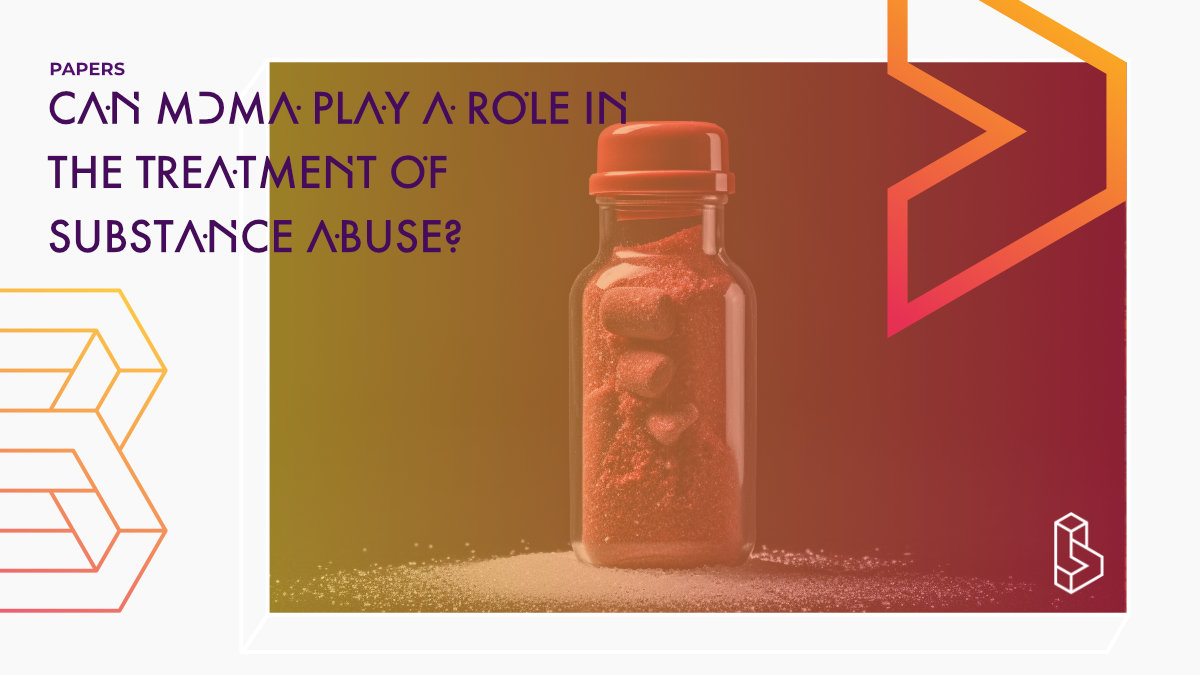This review (2013) evaluates the potential of MDMA to treat substance abuse and dependence. The authors provide evidence that MDMA may have potential as a treatment for these morbidities but also highlight that classical psychedelics have a better risk to benefit ratio.
Abstract of Can MDMA Play a Role in the Treatment of Substance Abuse?
“A wider array of treatments are needed for people with substance abuse disorders. Some psychedelic compounds have been assessed as potential substance abuse treatments with promising results. MDMA may also help treat substance abuse based on shared features with psychedelic compounds and recent reports indicating that MDMAassisted psychotherapy can reduce symptoms of PTSD. Narrative reports and data from early investigations found that some people reduced or eliminated their substance use after receiving MDMA, especially in a therapeutic setting. MDMA is a potent monoamine releaser with sympathomimetic effects that may indirectly activate 5-HT2A receptors. It increases interpersonal closeness and prosocial feelings, potentially through oxytocin release. Findings suggest that ecstasy, material represented as containing MDMA, is associated with deleterious long-term effects after heavy lifetime use, including fewer serotonin transporter sites and impaired verbal memory. Animal and human studies demonstrate moderate abuse liability for MDMA, and this effect may be of most concern to those treating substance abuse disorders. However, subjects who received MDMA-assisted psychotherapy in two recent clinical studies were not motivated to seek out ecstasy, and tested negative in random drug tests during follow-up in one study. MDMA could either directly treat neuropharmacological abnormalities associated with addiction, or it could indirectly assist with the therapeutic process or reduce symptoms of comorbid psychiatric conditions, providing a greater opportunity to address problematic substance use. Studies directly testing MDMA-assisted psychotherapy in people with active substance abuse disorder may be warranted.”
Authors: Lisa Jerome, Shira Schuster & B. Berra Yazar-Klosinski
Summary of Can MDMA Play a Role in the Treatment of Substance Abuse?
In 2010, 8.9% of Americans aged 12 or older reported illicit drug use at least once in the past month, and 9.1% needed treatment for a substance abuse disorder.
Several treatments for substance abuse are available, including outpatient psychotherapy, pharmacological treatment, self-help groups, detoxification, rehabilitation facilities, and therapeutic communities.
Even well-recognized interventions for tobacco, alcohol, and opiate use fail to find strong support, and most people who receive treatment for substance abuse are refractory to treatment.
Find this paper
Can MDMA Play a Role in the Treatment of Substance Abuse?
https://doi.org/10.2174/18744737112059990005
Open Access | Google Scholar | Backup | 🕊
Cite this paper (APA)
Jerome, L., Schuster, S., & Klosinski, B. B. (2013). Can MDMA play a role in the treatment of substance abuse?. Current drug abuse reviews, 6(1), 54-62.

